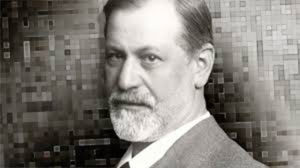Une dimension méconnue de la cure : La relation analytique
Résumé
Le présent travail se propose de cerner les caractéristiques de la relation analytique : définie comme le phénomène relationnel qui résulte de la transformation des relations "au sens courant du terme", et relation transférentielle, par l'interprétation.
La relation analytique apparaît comme un mode relationnel, nouveau, spécifique et promoteur d'évolution psychique. Son évolution présente trois phases et un conflit nodal qui l'oppose à l'attachement aux objets internes originaires. L'analyse complète de ce conflit s'avère nécessaire pour que le patient puisse libérer ses potentialités évolutives, jusque là prisonnières des identifications narcissiques aux objets primaires.
Samenvatting
In dit artikel wordt getracht de specifieke kenmerken van de psychoanalytisch relatie te omschrijven ; deze wordt bepaald als het relationeel verschijnsel dat voortkomt uit de omvorming van de relaties in de gebruikelijke zin van het woord en van de overdrachtsrelatie door de interpretatie.
De analytische relatie komt voor als een nieuwe relationele modus, enig in haar soort en promotor van psychische evolutie. Haar evolutie vertoont drie casen sarnen met een kernconflict dat haar in strijd te brengt met de genegenheid aan de oorspronkelijke interne objekten. Grondige analyse van dit conflict blijkt noodzakelijk opdat de patiënt zijn evolutiemogelijkheden zou kunnen vrijmaken. Tot dan toe waren deze namelijk de gevangenen van zijn narcissistische identificaties aan zijn primaire objekten.
Summary
The present work proposes to elucidate the characteristics of the analytic relationship, defined as the relational phenomenon which results from the transformation of relationships "according to current usage" and transference by means of interpretation.
The analytic relationship appears to be a new form of relationship, specific and encouraging psychic growth. Its evolution demonstrates three phases and a nodal conflict which places it in opposition to internal primal objects. The complete analysis of this conflict is shown to be necessary to free the patient's potentialities for evolution, up till then imprisoned in narcissistic identifications with primal objects.





